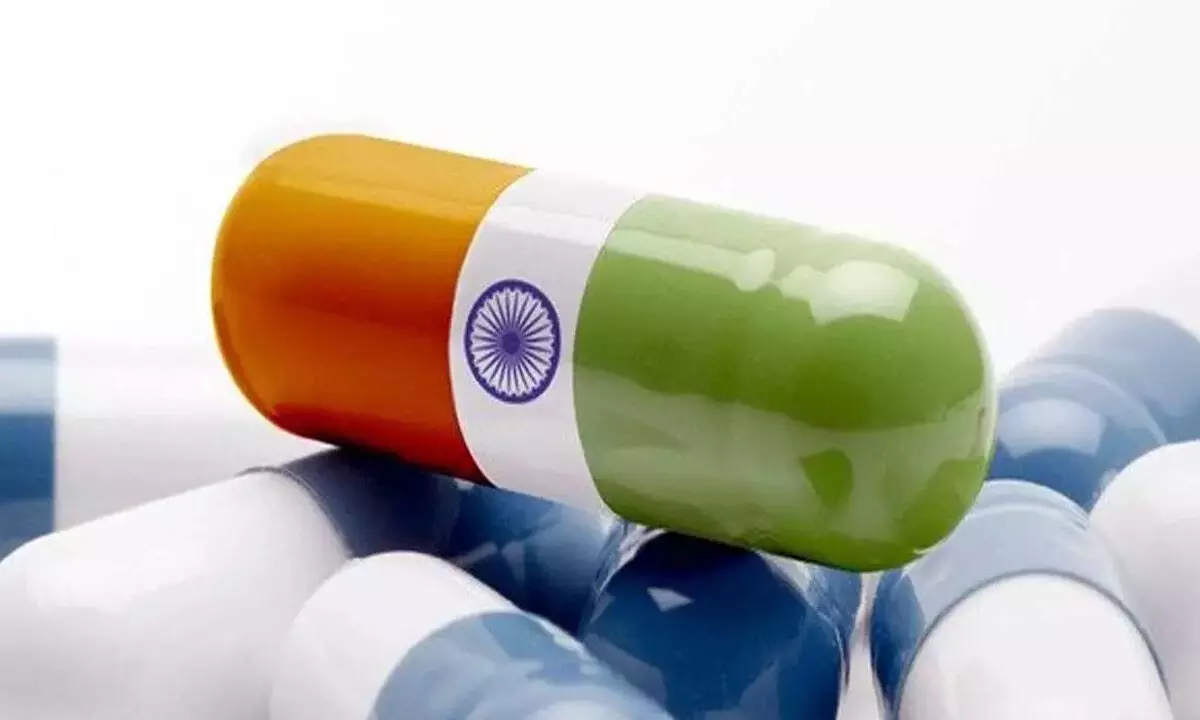Making Indian drugs globally competitive
The inclusion of pharma industry under RoDTEP scheme is going to give a boost to the domestic industry and provide a level playing field
image for illustrative purpose

In a rather belated decision, the Union Commerce and Industry Ministry has decided to include the pharmaceutical industry under the Remission of Duties and Taxes on Exported Products (RoDTEP) scheme which was launched by the central government to give a boost to the export from the country. Piyush Goyal, Union Minister of Commerce and Industry, at the Exporters Conclave in Chennai on October 16, 2022, had announced that the government has agreed to extend benefits of RoDTEP scheme to the pharmaceutical exporters to make them competitive globally.
Earlier in March, 2020, the Cabinet Committee on Economic Affairs of the Union Government had approved the RoDTEP scheme under which a mechanism was to be created for reimbursement of taxes/ duties/ levies, at the central, state and local level, which are currently not being refunded under any other mechanism, but which are incurred in the process of manufacture and distribution of exported products. Under the scheme, an inter-ministerial committee was to determine the rates and items for which the reimbursement of taxes and duties would be provided. In line with "Digital India", refund under the Scheme, in the form of transferable duty credit/electronic scrip will be issued to the exporters, which will be maintained in an electronic ledger. The Scheme will be implemented with end to end digitization.
The refunds under the RoDTEP scheme would be a step towards "zero-rating" of exports, along with refunds such as drawback and IGST. This would lead to cost competitiveness of exported products in international markets and better employment opportunities in export oriented manufacturing industries. At present, GST taxes and import/customs duties for inputs required to manufacture exported products are either exempted or refunded. However, certain taxes/duties/levies are outside GST, and are not refunded for exports, such as VAT on fuel used in transportation, Mandi tax, Duty on electricity used during manufacturing etc. These would be covered for reimbursement under the RoDTEP Scheme. A monitoring and audit mechanism, with an Information Technology based Risk Management System (RMS), would be put in to physically verify the records of the exporters. As and when the rates under the RoDTEP Scheme are announced for a tariff line/ item, the Merchandise Exports from India Scheme (MEIS) benefits on such tariff line/item will be discontinued.
But, much to the chagrin of the pharmaceutical industry, the pharma sector was left out of the RoDTEP scheme which was notified by the Directorate General of Foreign Trade (DGFT) through a circular on August 17, 2021. Since then, the pharmaceutical industry has been running from pillar to post to include the pharma industry also under the scheme which is going to give a boost to the domestic industry and Indian exports providing a level playing field for Indian producers in the international market so that domestic taxes/duties are not exported.
The scheme which replaced Merchandise Exports from India Scheme (MEIS) covered 8,555 products, with rates ranging from 0.3 per cent to 4.3 per cent. The removal of pharma sector from the list of beneficiaries under the RoDTEP scheme was a great discouragement for the pharma industry. The incentives received through the MEIS scheme had kept the industry sustainable and remained competitive in the global markets, which was evident from the fact that the Indian pharmaceutical industry could rise to the occasion during the Covid-19 pandemic. MEIS scheme was a replacement of incentive schemes introduced in the Foreign Trade Policy 2015-20 designed to provide rewards to exporters, to emphasize India's export interest, enhance India's competitiveness in the world market and also to offset the infrastructural inefficiencies and associated costs.
Of course, though belatedly, the Union Commerce Ministry's announcement of extending benefits of RoDTEP scheme to pharmaceutical industry is a welcome step. It is a fact that the Indian pharmaceutical industry despite many hurdles has outperformed and exported $ 24.41 billion during the year 2020-21 and is marching towards the ambitious target of $ 29 billion set by the government. The pharmaceutical industry is a strategic industry contributing significantly to spur growth in India's economy and it is the third largest principal commodity in terms of exports. It encompasses the contribution from large, medium and small scale industries complying to the international regulatory standards, investment in R&D and meeting these costs the companies resulting in huge expenditure at every stage. A large number of countries, including Europe, Bangladesh, China and other neighbouring countries, provide incentives to the pharmaceutical industry in their countries for export promotion and to remain competitive. In such a backdrop, the Union Commerce Ministry's decision to extend the benefits of RoDTEP scheme to the Indian pharmaceutical industry is a laudable action.
(The author is a freelance
journalist with varied experience
in different fields)

